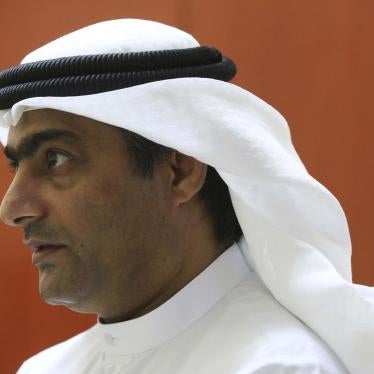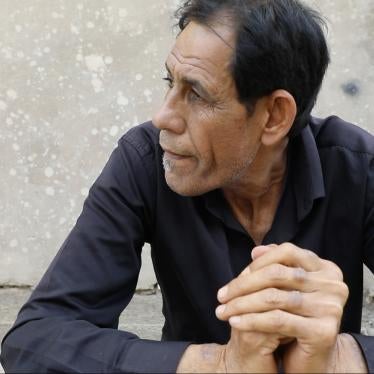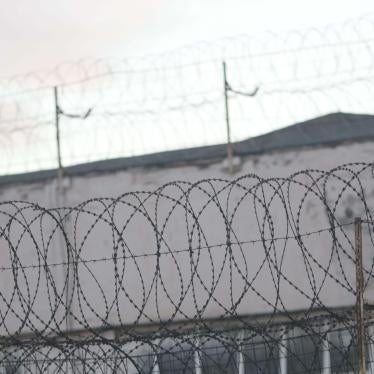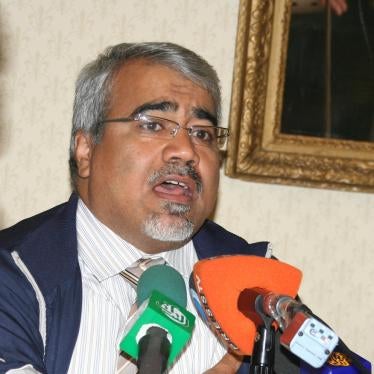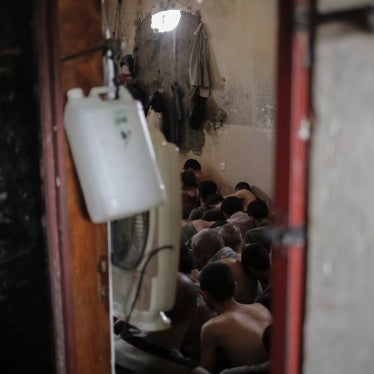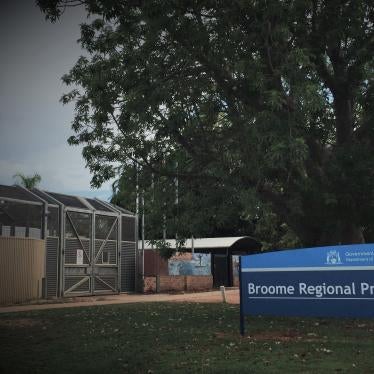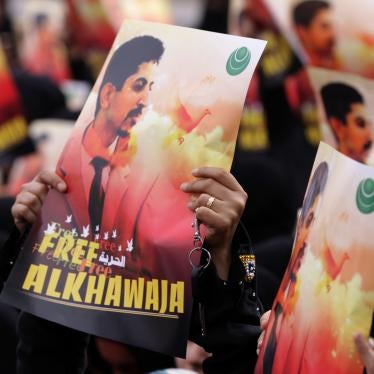Carine Kaneza Nantulya
HUMAN RIGHTS WATCH
When South Sudan became an independent nation in 2011 it established the National Security Service to gather and analyze intelligence and advise other state authorities.
However, today the security service operates far beyond this mandate. It has routinely used violence, intimidation, arrests, and torture to target suspected opponents of the government.
Anonymous Man 1
They opened the car and they pulled me inside. Some were actually tying my hands at my back, some were tying my feet. I was actually in the car for almost 48 hours. That's what happened to me, and I can say they are members of [the] security apparatus.
Carine Kaneza Nantulya
HUMAN RIGHTS WATCH
Our research identified three main detention sites used by the security service in Juba – Blue House, Riverside and Hai Jalaba, although none is authorized by law for detention purposes.
The National Security Service have even used residential houses for detentions. Detainees are sometimes held for months or years centers without charge or trial or access to their families and lawyers.
Those who’ve been detained in these facilities include suspected rebels, students, human rights defenders, journalists, activists, political dissidents, and aid workers.
Anonymous Man 1
People who are active, reporting things that are affecting the community, are the ones targeted.
Anonymous Man 2
They said, you are criticizing the president, you are criticizing the entire system of the country.
Carine Kaneza Nantulya
HUMAN RIGHTS WATCH
People we interviewed told us of beatings, being hung upside down from a rope, shocked with electricity, pierced with needles, burned with melted plastic, and even raped. Most were released without ever being interrogated, charged, or presented in court.
Anonymous Man 2
It's completely [outside] the law. The interrogation, and the way how they interrogate people during the investigation. // Individual detainees are always tortured. // The suffering inside the detention facility was very, very serious. You don’t have food. We don’t have water. We don’t have medication, treatment. Many detainees they used to die inside.
Carine Kaneza Nantulya
HUMAN RIGHTS WATCH
South Sudan cannot develop into a country that respects human rights and the rule of law with a security service that operates without accountability and egregiously abuses its citizens. To this end, the NSS must be changed.
TEXT
South Sudan’s new unity government should reform the National Security Service Law to restrict their mandate to intelligence gathering.
South Sudan’s regional and international partners should support NSS reform and insist on credible and independent investigations into their abuses.
